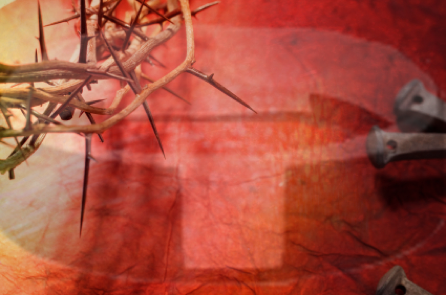When Priests Are Falsely Accused Part 3: The High Cost of Innocence
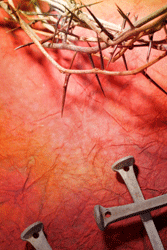 It is justice turned on its head that wrongly convicted prisoners and falsely accused priests both pay a very steep price for not being guilty.This is Part 3 of a 3-part series. Please click here for Part 1 and Part 2.Two weeks ago, in "The Mirror of Justice Cracked," I mentioned that on October 6, CNN's "Larry King Live" had a panel of twelve recently exonerated prisoners. They each served an average of 20 years in prison for sexual assault crimes they did not commit and had nothing to do with. Innocence Project founder, Attorney Barry Scheck appeared with them. Mr. Scheck spoke of 25 new exonerations for a total of close to 300 in the U.S. alone in recent years.A popular monthly Catholic magazine has a "Q & A" column hosted by a monsignor who answers readers' questions. A few years ago, a reader asked if it's possible that some Catholic priests could be falsely accused of sexual abuse and wrongly convicted by people looking for money. The monsignor's reply was painful and troubling, for me at least. "The American justice system," he wrote, "has built-in safeguards making it impossible for an innocent priest to be found guilty or an innocent diocese or bishop to be held liable." I wrote to the monsignor asking for a chance to present another view, but never received a reply.It seems that twenty years of "Law and Order" episodes gave this good monsignor a fictional view of crime and punishment. A lot of people cling to the notion that police, prosecutors and judges always do the right thing, and justice always prevails. It usually does, but not always.In reality, sexual assault crimes pose an enormous problem for the criminal justice system. There is no other crime for which more guilty criminals are never prosecuted at all and remain free. But there is also no other crime for which more innocent men are falsely accused and wrongly imprisoned - sometimes for decades.
It is justice turned on its head that wrongly convicted prisoners and falsely accused priests both pay a very steep price for not being guilty.This is Part 3 of a 3-part series. Please click here for Part 1 and Part 2.Two weeks ago, in "The Mirror of Justice Cracked," I mentioned that on October 6, CNN's "Larry King Live" had a panel of twelve recently exonerated prisoners. They each served an average of 20 years in prison for sexual assault crimes they did not commit and had nothing to do with. Innocence Project founder, Attorney Barry Scheck appeared with them. Mr. Scheck spoke of 25 new exonerations for a total of close to 300 in the U.S. alone in recent years.A popular monthly Catholic magazine has a "Q & A" column hosted by a monsignor who answers readers' questions. A few years ago, a reader asked if it's possible that some Catholic priests could be falsely accused of sexual abuse and wrongly convicted by people looking for money. The monsignor's reply was painful and troubling, for me at least. "The American justice system," he wrote, "has built-in safeguards making it impossible for an innocent priest to be found guilty or an innocent diocese or bishop to be held liable." I wrote to the monsignor asking for a chance to present another view, but never received a reply.It seems that twenty years of "Law and Order" episodes gave this good monsignor a fictional view of crime and punishment. A lot of people cling to the notion that police, prosecutors and judges always do the right thing, and justice always prevails. It usually does, but not always.In reality, sexual assault crimes pose an enormous problem for the criminal justice system. There is no other crime for which more guilty criminals are never prosecuted at all and remain free. But there is also no other crime for which more innocent men are falsely accused and wrongly imprisoned - sometimes for decades.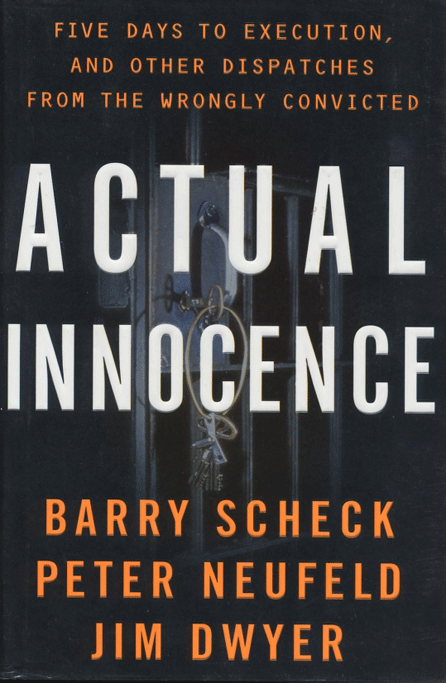 That much, at least, has been made clear in the hundreds of DNA exonerations of the last few years. Society must not treat lightly the fact that some 300 men wrongly spent decades in American prisons for crimes - mostly sexual assault crimes - that they did not commit. As Attorneys Barry Scheck and Peter Neufeld describe in their powerfully compelling book, Actual Innocence (New American Library, 2003):
That much, at least, has been made clear in the hundreds of DNA exonerations of the last few years. Society must not treat lightly the fact that some 300 men wrongly spent decades in American prisons for crimes - mostly sexual assault crimes - that they did not commit. As Attorneys Barry Scheck and Peter Neufeld describe in their powerfully compelling book, Actual Innocence (New American Library, 2003):
"DNA testing is to justice what the telescope is for the stars . . . a way to see things as they really are. It is a revelation machine. And the evidence suggests that thousands of innocent people are in prison." (Actual Innocence, Introduction, op. xviii).
What Barry Scheck and Peter Neufeld meant was that many sexual abuse cases do not involve DNA evidence, or any other evidence by which a person can be irrefutably either convicted or cleared. Many men - and they are overwhelmingly men - in prison for sexual abuse or assault crimes are there based solely on someone's word, with no real evidence at all. I wrote of some of what these men went through in my post, “The Eighth Commandment.”
In the case of accused Catholic priests, the fact that accusers stand to gain hundreds of thousands of dollars for making their claims, and the fact that priests are made very easy targets when the Church has no interest in corroboration, seems not to weigh into the justice equation at all.
As I mentioned in "The Mirror of Justice Cracked," the new film, "Conviction" opened in theaters around the country this month. It's the incredible, but true story of Betty Ann Waters (Hilary Swank), whose brother Kenny Waters (Sam Rockwell) spent 18 years in prison for a crime he did not commit while Betty Ann Waters worked her way through law school to help prove his innocence. It's the story of one family's Way of the Cross, and a tour de force of the power of love and truth."THAT'S WHAT THEY ALL SAY!"Every one of the men who appeared on Larry King Live that night was wrongly convicted by a jury or forced into plea deals because they could not afford adequate legal defense. The sheer frustration they related to the CNN cameras riveted me to the TV screen. "That's what they all say!" was thrown in one man's face for twenty years whenever he said he was not guilty. That has also been said to me, and it was said by other priests and officials of my own diocese. One former official of my diocese - now, dreadfully, the head of a nationally known treatment center for priests - callously dismissed my protests of innocence as "a paranoid rant" without ever having even met me.You might remember my friend, Leo Demers from "Simon of Cyrene: Compelled to Carry the Cross." Several years ago, Leo was a senior executive for a major television network. One day, Leo and a production crew were inside a Massachusetts prison obtaining footage for a news documentary on prisons. While listening to all the statistics on crime and punishment, Leo asked their guide, "How many of your prisoners are innocent?" "It depends on who you ask," said the prison official. "If you ask them, they're ALL innocent!" Well, that's just not true. That's certainly not what they all say. There is a high price to pay when prisoners, especially those convicted of sexual crimes, insist they are innocent.I have been in this prison for over sixteen years, and I can count on one hand the number of men who have told me they are innocent of the crimes for which they were convicted, and who maintain that position for any length of time. Once the real costs for making such a claim become clear, no sane prisoner would continue to risk claiming innocence if he was not. Once a defendant becomes a convict, claims of innocence are not always in his best interest.WALK A FEW STEPS IN MY SHOESThese Stone Walls began 2010 with a post about the late Father Richard John Neuhaus of First Things who began corresponding with me a dozen years ago. In 1998, Father Neuhaus wrote of his concern that people might criticize him if he publicized my claim that the crimes for which I was sent to prison never took place. Father Neuhaus wrote that people will see my claims as self-serving. The editorial that Father Richard Neuhaus wrote years later about my case - the one called "A Kafkaesque Tale" located above at "A Priest's Story" - came about only when he finally understood just what a claim of innocence means for a wrongly convicted prisoner, especially a wrongly convicted Catholic priest. The Reverend Richard John Neuhaus would not lightly have concluded:
"Bishop John McCormack, a former aide of Boston's Cardinal Law, and the Diocese of Manchester do not come off as friends of justice or, for that matter, of elementary decency . . . You may want to pray for a Church and a justice system that seem indifferent to justice."
The punishment phase of sentencing is not over when a condemned man is escorted in chains out the courtroom door toward a prison-bound van. As I wrote in my post, "Saints Alive!" I marked sixteen years in prison on September 23, Saint Pio's feast day. Had I been guilty, and said so, I would not be in prison today. I would have walked out of prison a free man over thirteen years ago - with no parole and no ties to bind me. If I could have stood before the Honorable Judge Arthur Brennan and said the word, "guilty" in 1994, I would not be in prison writing this blog post today.
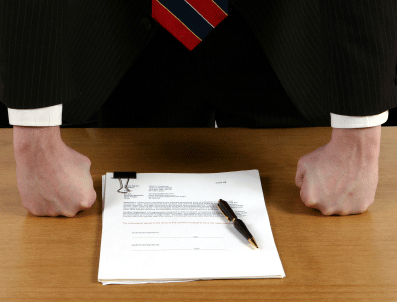
On two occasions before my trial, the prosecutor offered, in writing, a "plea deal" for a sentence of one to three years if I would say that one word, “guilty." In the middle of trial after my accuser's bizarre testimony, I was asked to step outside for ten minutes to reconsider my position. My defense counsel was even asked to submit a counter offer for an even lesser sentence, but I just couldn't say the word.During that ten minutes in the lobby of the courtroom that day, I went to a pay phone and telephoned two people. First, I called Attorney Bradford Cook, a lawyer who represented my diocese against the simultaneous lawsuits brought by my accusers - four brothers all in their late twenties and early thirties. I told Attorney Cook of the pressure to take the deal, and I told him that I was not guilty of these charges. Attorney Cook told me that taking a plea deal would make it much more difficult for my diocese to defend against the lawsuits. Then I called Father David Deibel, my canonical advocate. He told me that a plea of guilty - even a negotiated lie like this one would have been - could mean dismissal from the priesthood. I walked back into the courtroom and refused the deal.In the end, I was sentenced to a term of 33 1/2 to 67 years in prison for exercising my Constitutional right to a fair trial and a presumption of innocence - though I believe I got neither from either Church or State - for a crime that never took place at all. Also in the end, my diocese did nothing to defend against the lawsuits and instead opted to settle them - and hundreds of others against other priests similarly accused.Eight years into my fight for exoneration, with no help at all from my diocese, my bishop promised to hire legal counsel to review the case. He then reneged on that offer, and sought my administrative dismissal from the priesthood when he was implicated in the scandal from the time he served as an auxiliary bishop of Boston. Fortunately, to date at least, that betrayal has not been successful.LIVE FREE OR DIE TRYINGBut even then, punishment wasn't over. The lower number in a New Hampshire prison sentence is only available to prisoners who can become eligible for parole by admitting guilt. Absent that, I will not be allowed to leave prison until the age of 108 for a crime - brought with no evidence at all - alleged to have happened when I was 29.This reality was best described by a New Hampshire lawyer who commented anonymously on a document entitled "Lawyers Weigh In on the Sentence of Rev. Gordon MacRae" found at "Commentary" above:
"Parole does almost invariably require an admission of guilt . . . This has the perverse and Kafkaesque result that confessed child molesters who admit guilt and promise not to do it again are likely to obtain parole at an early date, whereas a middle-aged man with a long sentence who insists he is innocent will likely die in prison."
But there was still more punishment to come. When I was sent to prison in late 1994, the housing units where most prisoners were placed were not available to me because I would not admit guilt. Most prisoners spend four to six months in a section of the prison that houses eight prisoners to a cell. Yes, that is as miserable an existence as it sounds! Prisoners typically wait there until a bunk opens up in the preferred housing units where there are some amenities and a little freedom of movement. Such a move has never been available to me. Because I maintained my innocence, I spent five years confined in a cell with seven other prisoners.I watched others come and go for years while I remained there longer than just about any other New Hampshire prisoner. Only after five years in such conditions was I allowed to move to a far more humane existence in a unit with but two men per cell.
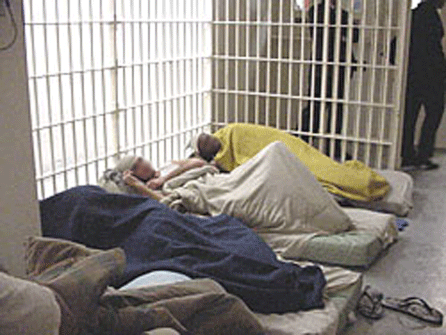
Usually prisoners are moved back to the 8-man cells as a punishment for disciplinary reports. In over sixteen years, I have not had a single such infraction or report. But I guess it was inevitable. Weeks after The Wall Street Journal published "A Priest's Story" in 2005, I was suddenly one day moved to the eight-man cells again. It was a terrible letdown, and it took many months to earn my way back to the place I have lived in since; to the cell where These Stone Walls began last year.Imagine what it feels like, then - as I described in "The Mirror of Justice Cracked" - to hear Church officials like the former director of the largest treatment center for accused priests suggest that it is self-serving for an accused priest to maintain his innocence. Self-serving?IS FREEDOM FOUND IN FURY OR FIDELITY?While I was typing this post in my cell last night, I received something in the mail that caused me a lot of distress and heartache. It was a mass mailing sent to many priests - including most of those currently in prison - from a priest who was himself accused. He has formed an advocacy organization that claims to seek justice for priests, but too often, I fear, it promotes vengeance. There's a difference, and I wrote about the difference last month in "Angelic Justice." Vengeance is nothing more than justice from which all signs of mercy have been stripped.The mass mailing I received included a list of fifteen U.S. bishops who have themselves been accused of sexual misconduct. The mailing named them, described their current status, then presented graphic details about claims against them, founded and not, corroborated and not.The priest's letter took great pains to point out the double standard that is the source and substance of his anger. The double standard is that some of the accused bishops remain in their ministry because they maintain their innocence and deny claims against them. For all of them, their dioceses funded criminal, civil, and canonical legal counsel while most similarly accused priests are abandoned and on their own. None of the bishops need fear administrative laicization without defense or the loss of their retirement benefits.Yes, it does feel like a double standard. Father Richard Neuhaus pointed that fact out in a First Things article, "Clerical Scandal and the Scandal of Clericalism," and he did so with great fidelity to the Gospel and the Church.But none of this gets to the point of this priest's anger. I believe he was falsely accused. I believe his bishop treated him very badly. I share his deeply felt anger and pain. But our paths separate right there. I do not and cannot condone or share his vengeance. Being falsely accused does not give me license to do to others what I protest has been done to me. Most of those fifteen bishops faced allegations without evidence just as I did. Each deserves a presumption of innocence from the entire Church - including me. The priest is wrong to disseminate their names and these details.It's ironic that this same priest is often angry with me because he doesn't think I am angry enough. I assure you, he's wrong on that score. But being angry and feeling let down does not excuse me from doing the right thing. It does not excuse me from fidelity to the Gospel, fidelity to the Church, and fidelity to my own sense of right and wrong. At the end of the day, I am still wrongly imprisoned, but I have the freedom to choose the person I'm going to be while wrongly imprisoned.When I began this three-part post three weeks ago, I set out to write the nature and scope of the injustices that took place in my diocese. Now that it comes down to it, I can't. It feels too much like vengeance. There is far too much at stake for me to settle for something so unfaithful as vengeance.Others wrote the story, however, and I'm going to let that suffice. I hope you will read it for yourself at "Case History IV: Status of the Case." It’s a cautionary tale about one priest's steep, uphill climb toward justice. You can help, if you’re so inclined. You could help by Tweeting, facebooking, pinging, e-mailing, or blogging a link to this series of posts so that other Catholics may see it, and especially other priests. For your convenience, the "please share this post" buttons are located below this post and all others.Toward the end of his book, Double Standard (p. 149), David F. Pierre, Jr. wrote: "The last several years have been a tough time to be a priest." Tell me about it!
You can help, if you’re so inclined. You could help by Tweeting, facebooking, pinging, e-mailing, or blogging a link to this series of posts so that other Catholics may see it, and especially other priests. For your convenience, the "please share this post" buttons are located below this post and all others.Toward the end of his book, Double Standard (p. 149), David F. Pierre, Jr. wrote: "The last several years have been a tough time to be a priest." Tell me about it!
